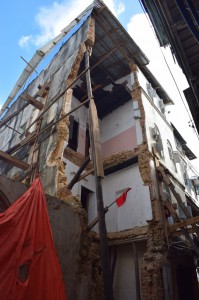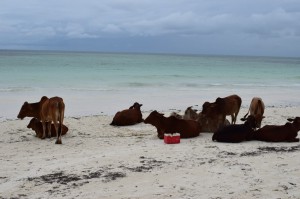For the second half of my time in Tanzania, I worked in the NICU and maternity ward. Nothing could have prepared me for this. 
Neonates are also admitted for a variety of other reasons, with one of the most common being asphyxia in Zanzibar. Again, managing such a condition is very difficult when CPAP is also not an option. Children here shared an incubator, with 3-5 babies per incubator.
Here I again worked on my skills in clinical management and judgement, often with very little information. One of the best investments made was a hand-held pulse oximeter, which gave the essentials when assessing babies. It helped to make swift judgements about what could be done to manage these children.
In among working in the NICU, I also spent a small amount of time in the maternity ward. Here, you needed to be on top of your game. The maternity ward consisted of three main rooms. There could ea
sily have been 50 women between them birthing at any one time. Again, due to the lack of antenatal care, it was often difficult to know a woman’s history. However, it was not uncommon for this to be their 7th plus baby, or present in labour prematurely.
This role was about monitoring progression as best as you could and assisting in the delivery stage. Again, due to a lack of resources, many things that were used with these women, such as cannulas or catheters, were brought in by the family at the time of presentation. It made me appreciate how lucky we are to have a public paid system, as we aren’t waiting mid labour for a sign off on payment of the bag of fluids you need to give a woman.
As woman are obviously at higher risk with multiple births for complications, woman are counseled at the time about
 contraception, with options like IUDs presented. However, due to the culture they, almost all turn down contraception.
contraception, with options like IUDs presented. However, due to the culture they, almost all turn down contraception.
All in all, I found this another fascinating yet really challenging placement. It is hard knowing that there is often an upper limit of care which is dictated by resources but it also encourages you to do everything you could with what you had.

No comments yet.
Leave a comment